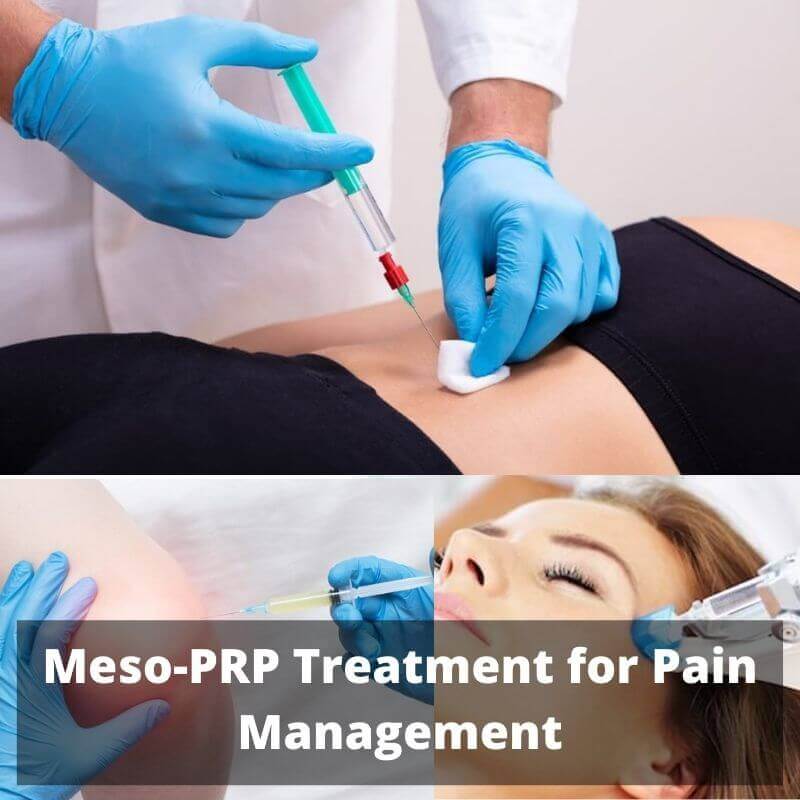- Home
- Platelet Rich Plasma (PRP)
- Pages
- Pain Management

Meso-PRP Treatment for Pain Management
The goal of Meso-PRP in pain management is to reduce or eliminate pain through healing.The platelets in PRP release growth factors that play a vital role in bone healing.Growth factors include Platelet-derived Growth Factor, Transforming Growth Factor-ß, Vascular Endothelial Growth Factor as well as several others.This PRP is mixed with special natural cocktails specialized person to person and inserted to promote a faster healing response.
It is also effective in treating acute soft tissue injuries or chronic tendinopathies like acute Achilles tendon repair, rotator cuff repair, acute ligament injury, muscle injury, and meniscal repair, knee joints pain, osteoarthritis, frozen shoulder, back pain, disk problems, and sports injury.
Benefits:
- Starts results after 1st session of treatment.
- It repairs damage tissues, ligaments
- It stops further degenerative changes in bones.
- Repairs Cartilage of the bone.
- Good option for knee joints pain, shoulder pain, elbow joint pain, back pain and disk pain treatment
- It is completely painless.
- There is No side effects, no risk.
- It is done by 15 years experienced professional doctor.
- Results are long lasting with maintenance session.
- It is newest treatment with excellent results.
PRP for Knee Joint Pain
Plasma Therapy offers relief for a wide variety of injuries and conditions, not just to the knee but to numerous areas of the body. However, for those whose specific complaints involve the knee, some of the more common conditions that PRP can effectively work for include muscle injuries, common bursitis, multiple types of osteoarthritis, muscle tears, tendinosis, tendinitis, tears of the tendons, and more.
Damaged tissue and injured cells are thus able to restore themselves to their full capacity.


PRP for Neck and Back Injury Pain
- Osteoarthritis of the Knee, Shoulder, Hip and Spine
- Rotator Cuff Tears
- Chronic Plantar Fasciitis
- ACL Injuries
- Pelvic Pain and Instability
- Back and Neck Injuries
- Tennis Elbow
- Ankle Sprains
- Tendinitis
- Ligament Sprains